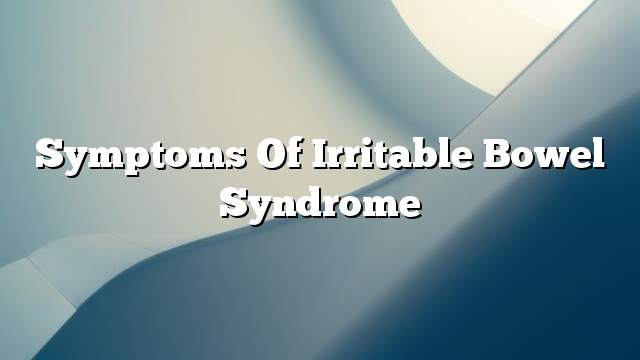IBS
Irritable bowel syndrome is a common gastrointestinal disorder, a disorder that occurs in the intestine and produces symptoms that may be less clear than other diseases, but can be controlled by modifying the diet, and the good advantage of this disease is that it does not cause inflammation or changes in inflammation. Stomach tissue, or increases the risk of colon disease.
Symptoms of Irritable Bowel Syndrome
- General symptoms: Symptoms may be initially bloating, gas and stomach sounds, constipation or diarrhea after food, especially in the morning and the feeling of not finishing the exit after going to the bathroom, and pain and stomach cramps, but disappear after going to the bathroom.
- Direct symptoms: These symptoms occur in the majority of patients with Irritable Bowel Syndrome, which is the occurrence of gastrointestinal disorders such as abdominal swelling due to increased gas in the stomach, which may be accompanied by gastrointestinal pain on the abdominal wall from the bottom in the left area where the colon, Pain in all areas of the abdomen. There may also be a disturbance in the output function where symptoms of diarrhea or constipation may occur or both may occur at the same time, and may be accompanied by difficulty in defecation despite the desire for severe, and may arise sometimes hemorrhoids, especially in patients with chronic irritable bowel syndrome, and as a result of these symptoms The patient may have mental disorders such as anxiety beyond normal limit or depression, and some patients may suffer from fear or panic of things that may be simple and may develop to the occurrence of obsessive-compulsive disorder.
- Indirect symptoms: such as gastrointestinal problems such as nausea in the morning, especially, or health problems in different areas of the body such as back pain and shoulders or temperature difference any sensation of heat or cold concentrated in the parties or part thereof.
- Open symptoms: Irritable bowel syndrome may not be responsible for these symptoms, which may occur at a lower proportion of patients, including fatigue, lethargy, tiredness of less effort and weight loss, and a deterioration in sexual desire and ability.
Irritable bowel syndrome
The treatment depends on the nature of the therapeutic relationship between the doctor and the patient, as the patient must be fully aware of what the disease and the problem causing it, and can be treatment by:
- Insert the fiber into the diet.
- Increased intake of fluids.
- Regularity in exercise.
- Caution in the use of anti-diarrhea drugs.
